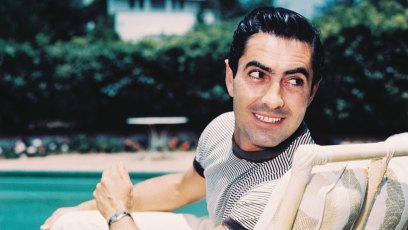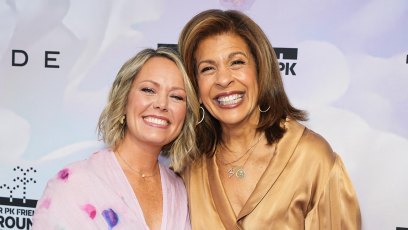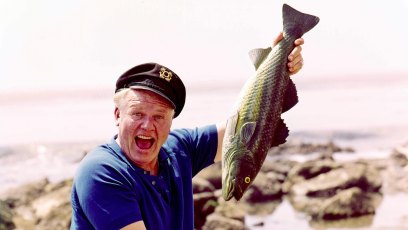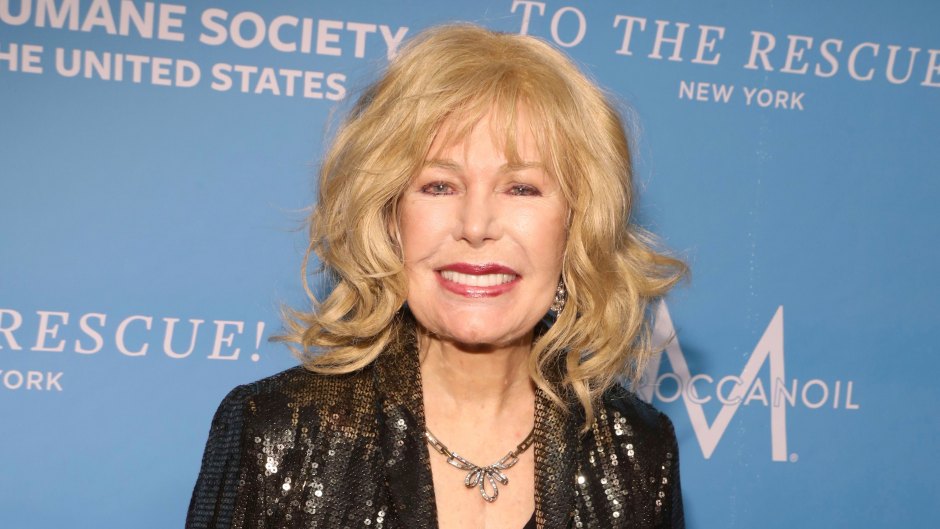
Amy Sussman/Invision/AP/Shutterstock
M*A*S*H’s Loretta Swit Recalls When She Knew She ‘Made It’ as an Actress: ‘This Is a Funny Story’
Over the 11 seasons that Loretta Swit played Margaret Houlihan on M*A*S*H, the character grew from a one-note nurse nicknamed “Hot Lips” into a multifaceted role model for working women everywhere. But it almost didn’t happen. In the fourth season, Loretta, the only female lead in the comedy-drama about an Army medical unit during the Korean War, took a hiatus after becoming frustrated that Margaret seemed to only exist to be the butt of Hawkeye’s (Alan Alda) jokes. The gambit worked. When Loretta returned for the fifth season, she was allowed more input into Margaret’s evolution into a warm, brave, complicated and ultimately beloved character. “I am a feminist, from the top of my head to the bottom of my toenail,” Loretta, 84, tells Closer. “And I favor playing strong women.”
Loretta remains an inspiration today. Her nonprofit, the SwitHeart Animal Alliance, helps fund organizations doing work to rescue animals, end cruelty and make the world a better place. Says Loretta: “Passion will take you a long way.”
Tell us a little about your book SwitHeart: The Watercolor Artistry & Animal Activism of Loretta Swit.
SwitHeart is a hardcover book that includes 65 full-color paintings and drawings as well as anecdotes about each animal I painted. Proceeds from this book will be donated to end animal suffering and cruelty. These paintings chronicle my years as an activist, which I think a lot of people know about me. I want to make the lives of animals better.
Which charities are you working with?
There are many. I just connected with a group of veterans who are looking to adopt military dogs. I can show you pictures that would break your heart. But I also have one of a soldier coming home [on a plane] with his dog on his lap — I’m talking about a big German shepherd! It’s very rewarding and wonderful when you can make that happen.
Do you feel a special bond with veterans because you played an Army nurse on M*A*S*H?
What is the veteran? A veteran is a person who, whether in active duty, retired or discharged, had in some moment in his or her life written a blank check payable to the United States of America for the sum of up to and including his or her life. They’re heroes. They’re extraordinary people.
How did you land the role on M*A*S*H?
I was late in going up for the role. They had seen, I don’t know, 200 people. And I went into it blindly. I hadn’t seen the movie. And there was no script. I also had an offer for a film with Olivia de Havilland — which put me in orbit because I am such a fan. So that may have pushed [the M*A*S*H producers] into making a fast decision. We met, got to know each other, and the rest is history. But, as a result, I have never seen the movie. I felt if I had the role, I had to do my own thing.
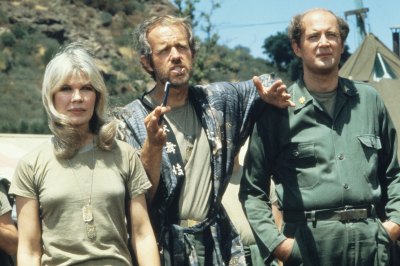
You’ve never seen the movie that M*A*S*H is based on? Weren’t you curious?
No, I have no interest. I’ve been told that we are nothing like the movie. We are closer to being based on the book. [MASH: A Novel About Three Army Doctors by Richard Hooker was released in 1968.]
What was it like being on that show?
Heaven. You had this wonderful thing that you were doing with these wonderful people. And you all felt the same way about the material. You know, everybody was happy to be there. And our guests would come back just to be with us, because it was fun. It was such a happy set.
Did you all bond easily?
Yes, from hello. Wayne [Rogers] and I would always say, “We got intimate quickly.” We shot a sort of summer show in the winter. At 5 in the morning, you’re up in the mountains in California, and it is very, very cold. And Wayne would be wearing one of those Hawaiian shirts the guys wore. He’d be turning blue. So we’d put a blanket around us and all huddle together on breaks.
Do you stay in touch with Alan Alda and the other surviving cast?
Oh, yes. The whole family. We’re family. Absolutely.
You took home two Emmy Awards for M*A*S*H. Did winning change your life?
Awards are sensational. They’re wonderful, and you feel loved and validated. I’m not sure
how much they change your life. I think M*A*S*H became a phenomenon, and that certainly affected tremendous change in all of our lives.
Did you feel typecast after the show went off the air in 1983?
No. I’m seldom seen as a timid, shy shrinking violet. I have a strong persona. Casting, generally, will go in that direction. They don’t see me as a victim.
What’s one of the least Margaret roles you have played?
I played a psychopath, which I loved [in the 1991 TV movie Hell Hath No Fury]. It was my opportunity to make a character who was very deadly. She needed help, and once we understood why she was behaving that way, we could have sympathy and empathy for her. It was very challenging.
Do you have a proudest achievement of your career?
No. I have loved every minute of my career. I love what I do. I also love reaching out and helping people. I’m very proud of my paintings. I’m not sure that’s an achievement. I do sell them, and the money goes into my charity to help animals.
When did you know that you had made it as an actor?
This is a funny story. I was standing on the unemployment line because I had finally worked enough weeks consecutively to claim unemployment as an actor. Back then, if you worked 26 straight weeks, you could collect so you didn’t have to type or wait on tables. It was like, YES!
How would you like to be remembered?
As someone who cared deeply. I’d like people to look at my stone and say,
“She was passionate.”
— Reporting by Amanda Champagne-Meadows
For more on this story, pick up the latest issue of Closer magazine, on newsstands now.








